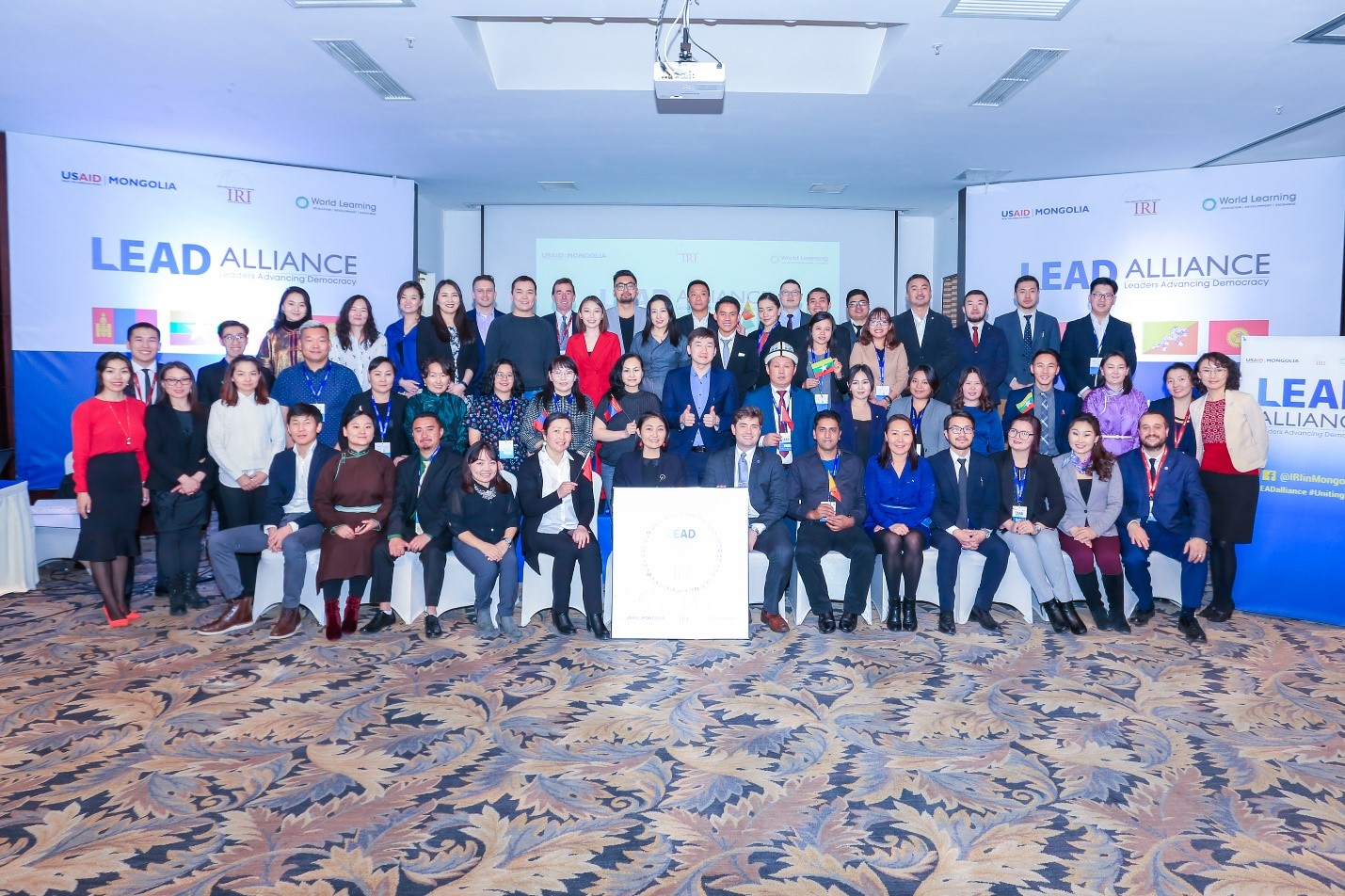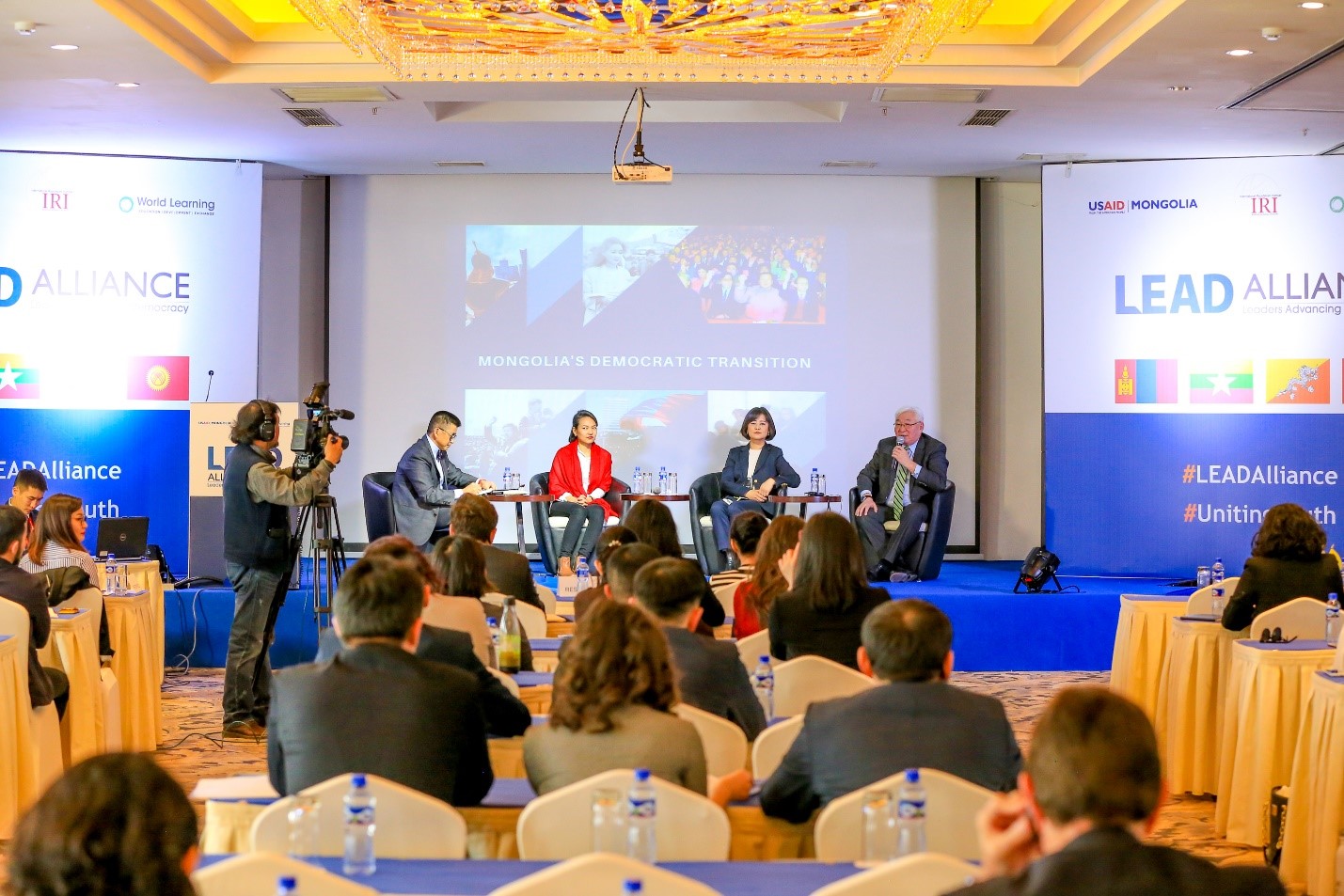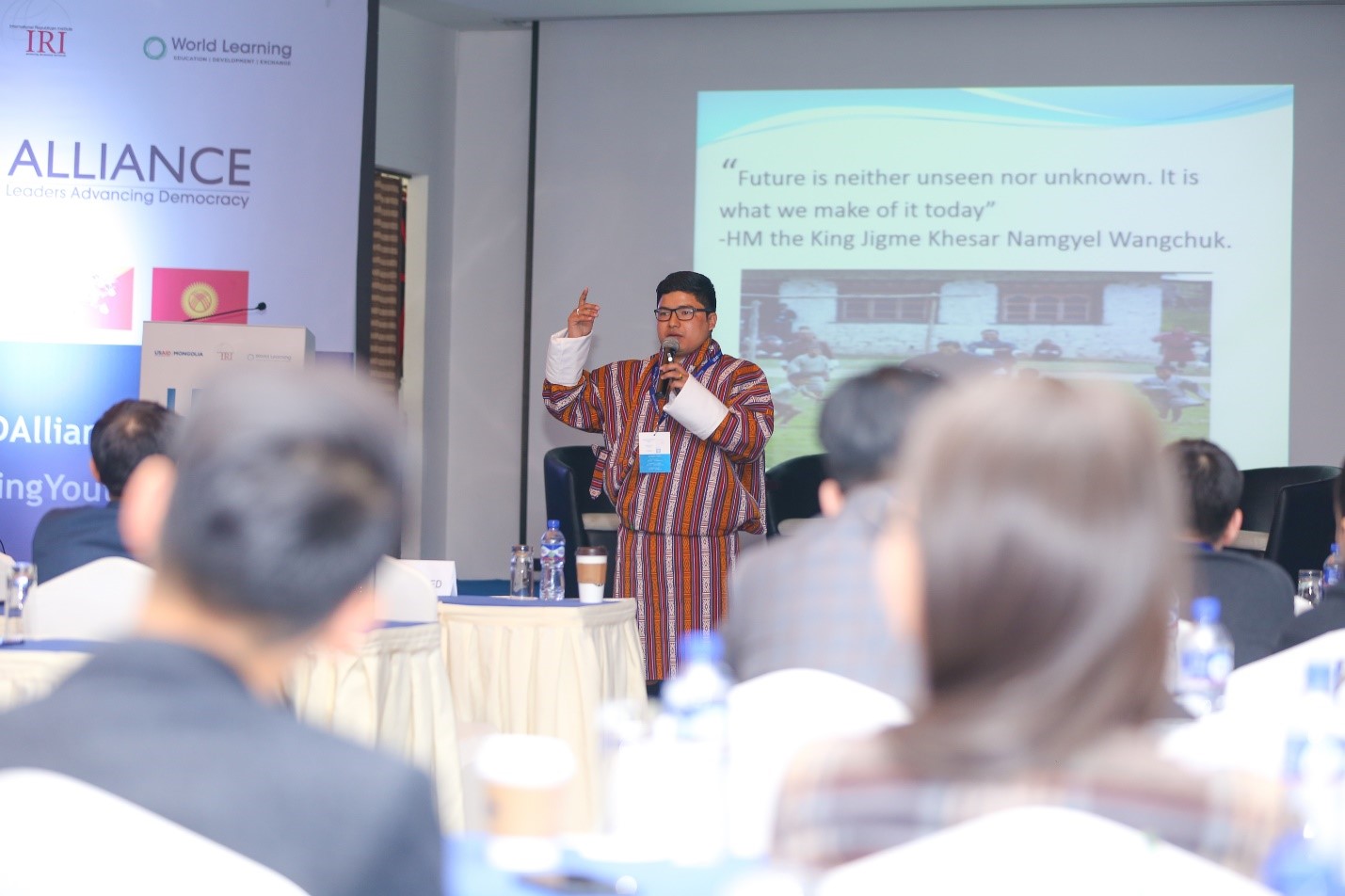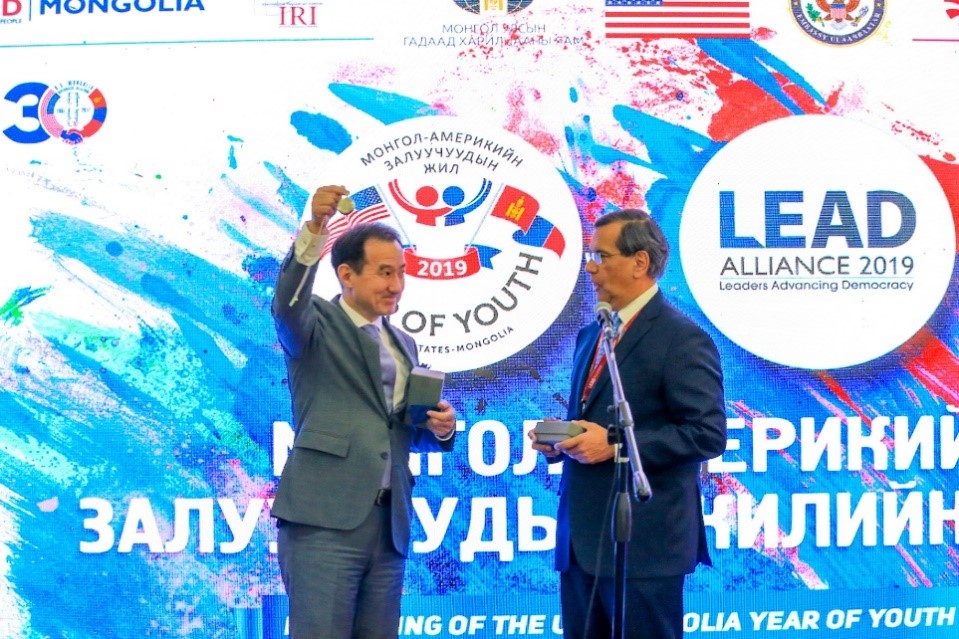LEAD Program Brings Together Mongolia’s Next Generation of Leaders
Since its peaceful democratic revolution in 1989, Mongolia has charted a successful path to liberal democracy and a free market economy. After six peaceful transitions of power and an average annual real GDP growth of 6.5 percent a year, Mongolia has become a positive role model for economic and political development. Engaging Mongolian youth is key to ensuring that the country’s democratic progress remains sustainable.
The United States Agency for International Development’s (USAID) Leaders Advancing Democracy (LEAD) program in Mongolia aims to develop the capacity of young Mongolian leaders to share this remarkable story and work in partnership with leaders from Bhutan, Kyrgyzstan and Myanmar to aid their paths to political and economic development.
Launched in 2016, LEAD is a five-year initiative jointly implemented by IRI, World Learning and the Centre for Citizenship Education. The program consists of three interconnected activities designed to support promising young leaders to work collaboratively to solve their country’s most pressing issues: a U.S.-Mongolia Emerging Leaders Exchange Program bringing together 230 young leaders aged 25 to 40 from different sectors; an international LEAD Alliance, which connects Mongolian emerging leaders with like-minded peers in Bhutan, Kyrgyzstan and Myanmar, and positions them as regional leaders; and a civic education curriculum development and citizen engagement component with high school students.
In February 2019, IRI convened 43 leaders from Mongolia and the three LEAD Alliance countries at its third annual LEAD Alliance Summit in Ulaanbaatar, Mongolia, which coincided with the launch of the U.S.-Mongolia Year of Youth. During the Summit, LEAD Fellows listened to panel discussions comprised of prominent Mongolian entrepreneurs, business leaders, journalists and the architects of Mongolia’s democratic revolution, who discussed the successes and challenges of Mongolia’s political and economic transition.

The three teams of LEAD fellows from Bhutan, Kyrgyzstan and Myanmar finalized community action projects that were designed jointly with LEAD Mongolia Mentors. These projects will utilize seed funding from IRI to encourage youth entrepreneurship in Bhutan, develop sustainable waste management programs in Naryn, Kyrgyzstan, and provide women in the dry region of Myanmar with the training and tools to be successful business leaders. The initiatives will provide crucial learning opportunities and management experiences for young leaders to develop and test their own unique approaches for change in their countries, while also providing Mongolian leaders a practical opportunity to serve as mentors.

Ambassador Gaddi Vasquez, IRI Board Member and former Director of the United States Peace Corps, shared his impressions of the LEAD program and the importance of cross-cultural youth interaction when giving the Summit’s closing remarks:
“We all can learn from one another’s experiences, which is why the LEAD Alliance program joins young leaders in Mongolia together with inspiring changemakers in Bhutan, Kyrgyzstan and Myanmar to catalyze change in their communities and the wider region. People across Asia look to Mongolia as a realistic model of how to achieve a peaceful transition to democracy. Mongolia’s peaceful democratic revolution began in the winter of 1989 with young people demonstrating in Ulaanbaatar’s famous Sukhbaatar Square. And while Mongolia still has many challenges of its own to overcome, Mongolia’s young people continue to improve upon the legacy that began nearly three decades ago.”

Top